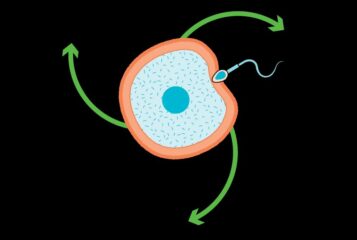PET turns 30 this year, but our story goes back further than that – at least as far back as the birth of Louise Brown, the world's first IVF baby, in 1978.
The impact of that event on science, medicine, law and policy is still being felt today.
Our precursor organisation, the Progress Campaign for Research into Human Reproduction, was formed in 1985 to campaign against proposed legislation that would have banned IVF and embryo research in the UK. Thankfully, the original Progress campaign was successful and the proposed legislation was defeated. Different legislation was passed instead – the Human Fertilisation and Embryology (HFE) Act, which permits fertility treatment and embryo research within a carefully regulated environment.
PET was founded as a charity – the Progress Educational Trust – in 1992. For the past 30 years, our charity's work has informed public, patient, professional and policy debate about fertility, genomics and embryo research.
Now, in 2022, we stand on the threshold of key changes in all of these areas. The UK Government has signalled that the HFE Act is likely to be revised in the near future (see BioNews 1142). A separate law that deals specifically with surrogacy is also being revised (see BioNews 1010), with a draft bill due to be published later this year.
As for genetics and genomics, the UK now has an NHS Genomic Medicine Service. Next year, an NHS-embedded pilot will begin recruiting families, to explore whether whole genome sequencing might be offered routinely for all newborn babies.
The new frontier of genome editing is leading to advances across all areas of molecular biology, opening up vast new possibilities while also bringing accompanying challenges.
For these reasons, and with the generous support of Ferring, we decided that now was the perfect time to commission a piece of wide-ranging, nationally representative research, to take the measure of public opinion and understanding of these issues. We are proud to present the results of this research in our new report 'Fertility, Genomics and Embryo Research: Public Attitudes and Understanding'.
We would like to thank Ferring for taking the bold step to fund this research, when they had no idea what the questions in the survey would be, let alone the answers. The resulting report is full of insights which we will be unpacking over the coming months, to shape our future strategies at PET. We will also be sharing the report widely to inform the work of other organisations, and we trust that you will do so too.
Do read the full report for yourself, but I wanted to focus here on just one of the questions we posed, about the funding of fertility treatment. Two-thirds of respondents supported the provision of NHS-funded fertility treatment to people who are infertile. Keep in mind that this is a representative sample of the UK public, who must have been aware that we are tentatively emerging from a global pandemic and there are huge pressures on NHS budgets. Even so, they still thought that fertility treatment should be funded.
This sends a strong message to the Government, NHS England (NHSE) and commissioning bodies. Now is the time to stop shifting blame between them and decide what to do about fertility treatment, who should do it, and who should pay. The amount of cash required to fix this is negligible in health budget terms.
If a vaccine programme can be rolled out, then surely it is feasible to sort out the fair provision of fertility treatment? The much anticipated Women's Health Strategy provides the perfect vehicle for the Government and NHSE to do so.
We are delighted that Louise Brown herself is among those who have added their voices to this report (see p9), and has joined us in calling for the postcode lottery for fertility treatment to end. The report's findings will guide our next 30 years of work, improving choices for people affected by infertility and genetic conditions.
If a reminder is needed about the importance of PET's work, last week's overruling of the Roe v Wade decision by the US Supreme Court is a salutary warning that we should not take laws permitting women's reproductive choice for granted. The impact of the Supreme Court's reversal may extend beyond termination of pregnancy to fertility treatment – for example, if it becomes illegal in the USA to destroy embryos which are not suitable for or needed for treatment.
If you would like to support PET's 30th birthday wish to film and disseminate all of our free-to-attend events in 2022, please make a donation here.







Leave a Reply
You must be logged in to post a comment.